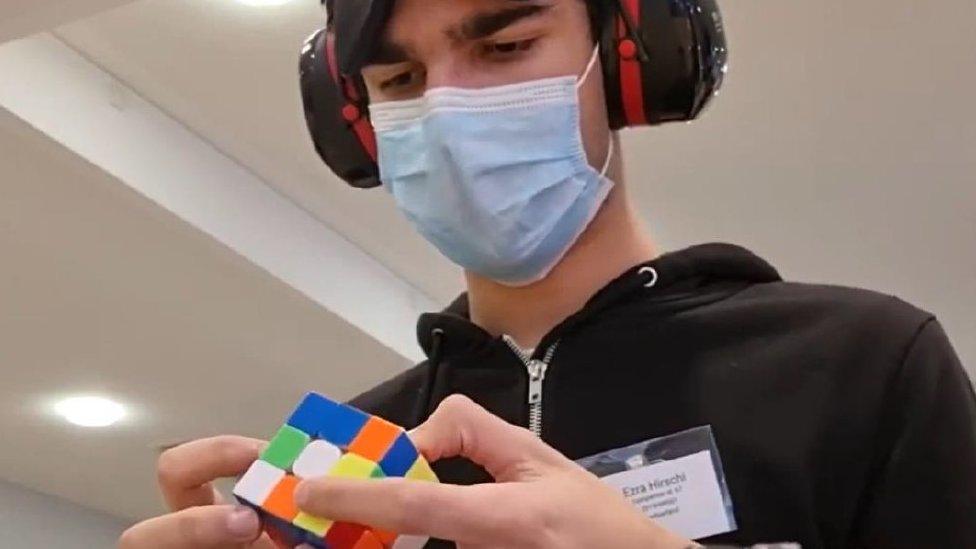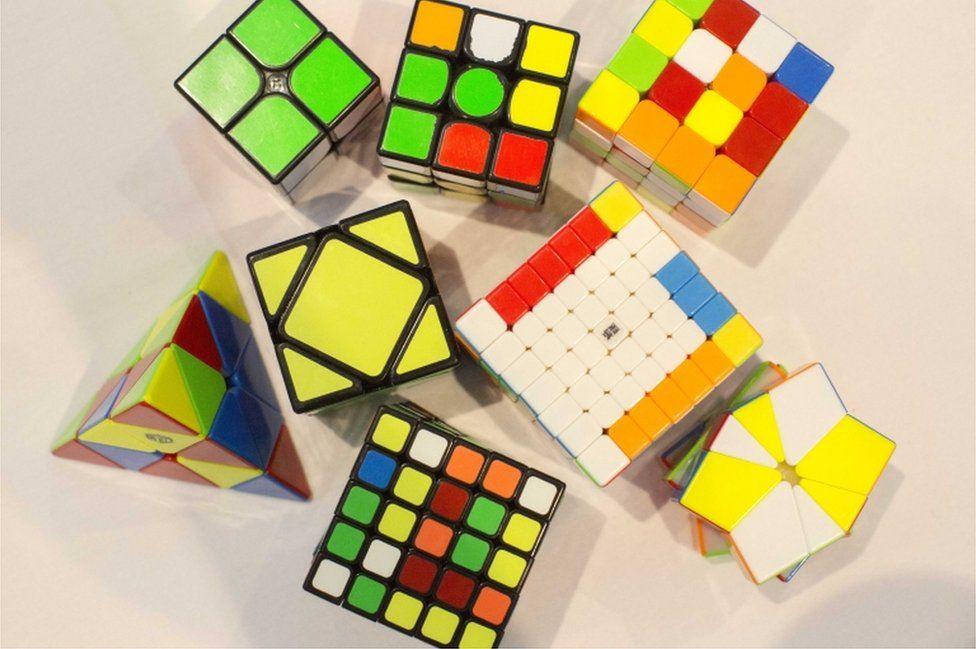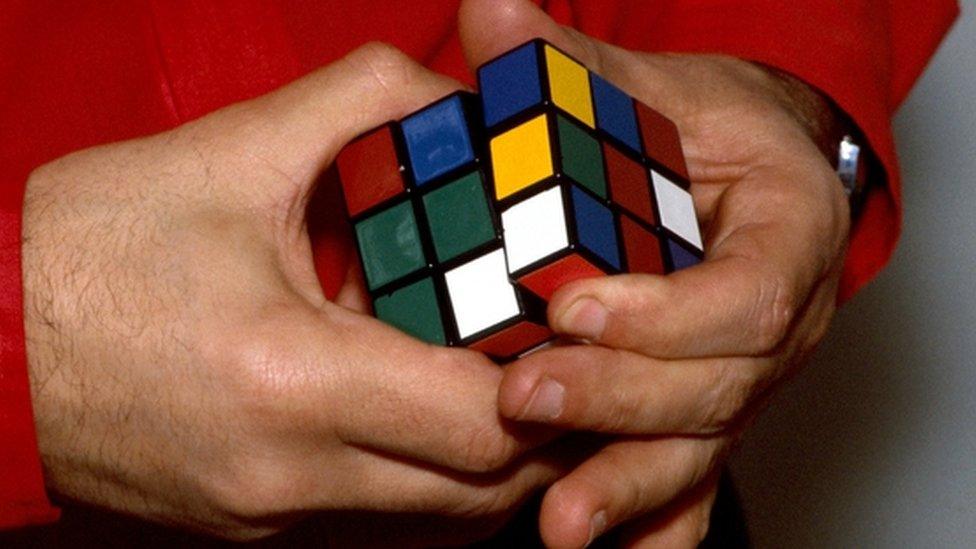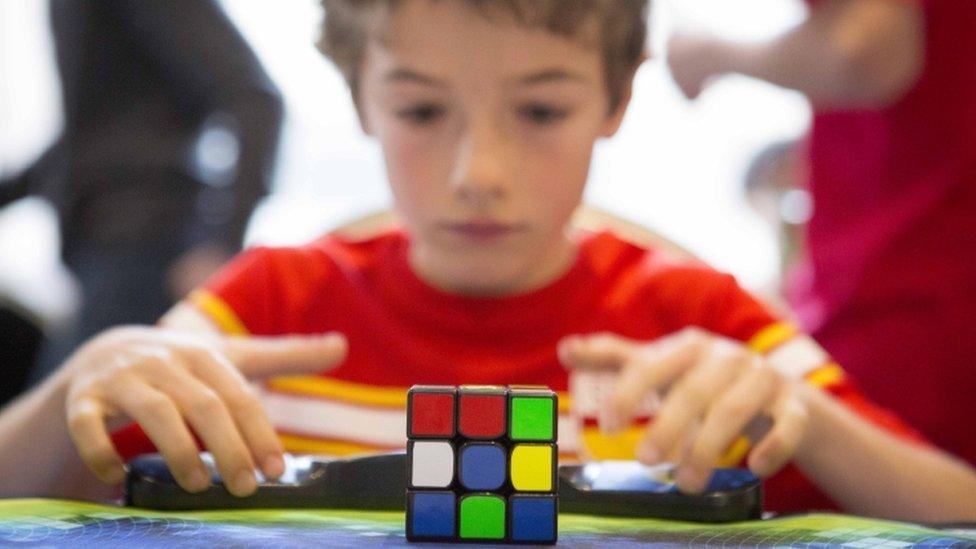Rubik's Cube record delight for teenager
- Published

Ezra Hirschi started solving Rubik's Cubes when he was five
A teenager said he is delighted to have broken three national Rubik's Cube records while blindfolded.
Ezra Hirschi, from Newcastle-under-Lyme, Staffordshire, completed the quick-fingered challenges at a two-day event in Germany.
While he lives in England, he represented Switzerland as his father is from the country.
The records the 17-year-old broke saw him wear a blindfold and speed-solve 3x3, 4x4 and 5x5 cubes.
"With the blindfolded events, it is a lot more complicated. You need a lot more determination," he said.
Ezra won the 4x4x4 blindfolded event in 3mins 20 seconds which broke the Swiss record by more than a minute.
He came third in the 3x3x3 event but his efforts saw him break two more national records, including his best time of 24.37 seconds for a single solve.

Different types of Rubik's Cubes are tackled during the events
Ezra said he first got into solving a Rubik's Cube when he was five after his mum bought him one which he completed in minutes.
But he became interested in "speed-cubing" when a friend at his school introduced him to the idea about three years ago.
Then during lockdown, while many other people baked banana bread and took part in Zoom quizzes, Ezra spent his time improving his speed skills.
The added skill of being blindfolded after memorising the cube "requires a lot more concentration and practise", Ezra admitted.
But overall, he said with enough motivation he believes "anyone can solve a Rubik's Cube".

The Rubik's Cube

The Rubik's Cube was invented in 1974 by Hungarian Erno Rubik, a young professor of architecture in Budapest, Hungary
He wanted a working model to help explain three-dimensional geometry
With colourful stickers on its sides, the solid cube twisted and turned - and still it did not break or fall apart
It took well over a month for Rubik to work out the solution to his puzzle
There are 43,252,003,274,489,856,000 (43 quintillion) ways to scramble a Rubik's Cube
Every legal permutation of the Rubik's Cube can be solved in 20 moves or fewer
If you were to turn a Rubik's Cube once every second, it would take you 1.4 trillion years to go through all the permutations.
Source: Rubik's UK

Follow BBC West Midlands on Facebook, external, Twitter, external and Instagram, external. Send your story ideas to: newsonline.westmidlands@bbc.co.uk, external
Related topics
- Published30 October 2017
